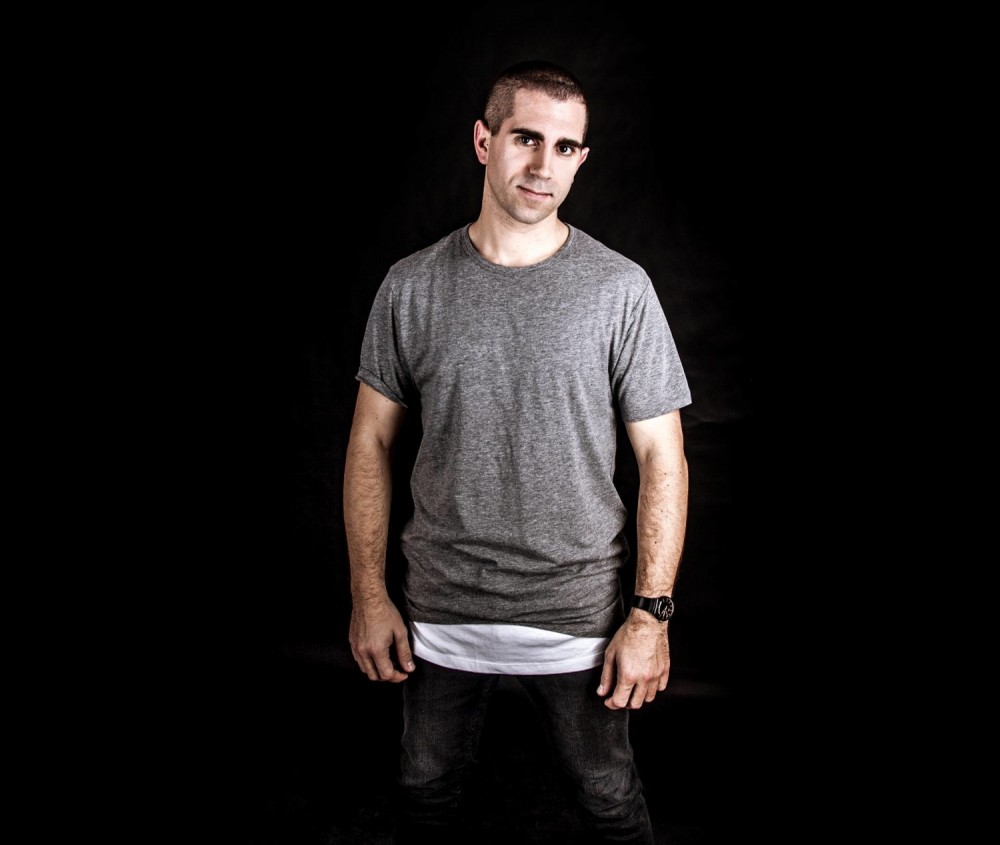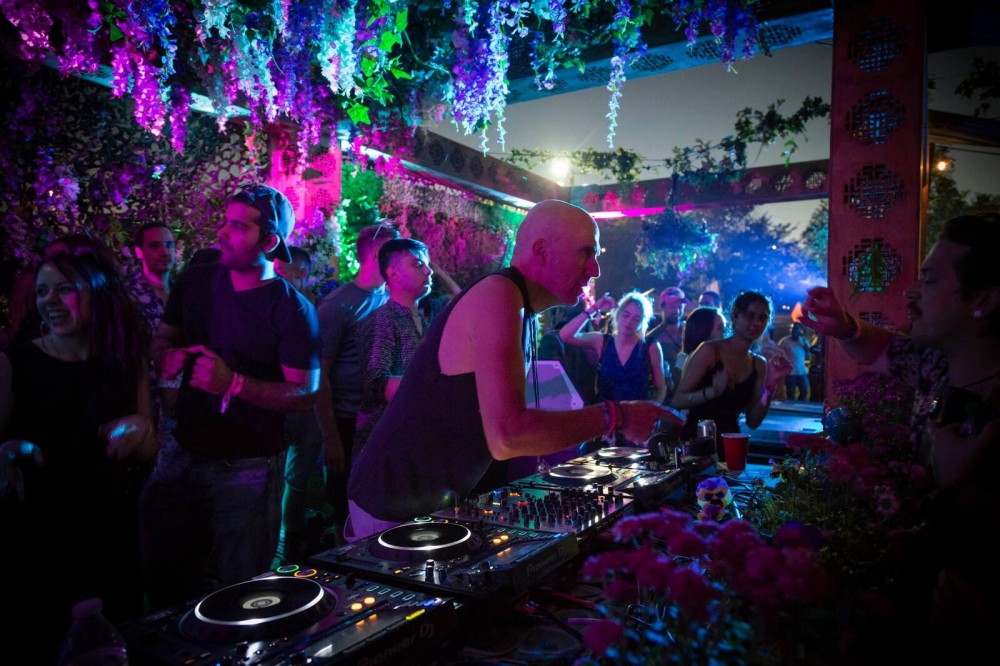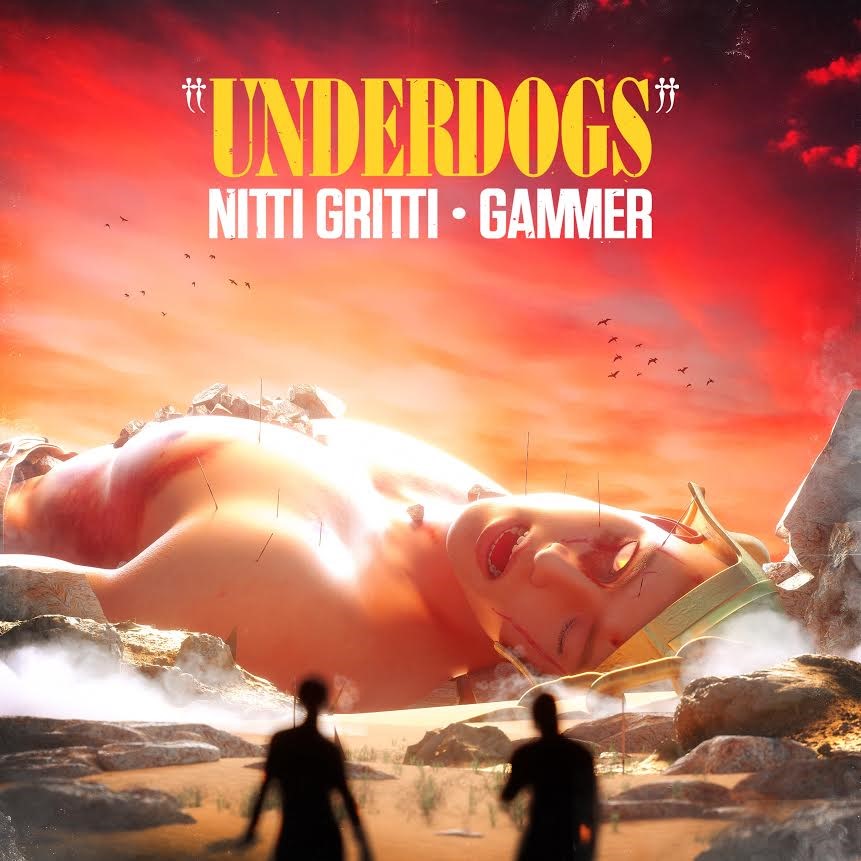
Giuseppe Ottaviani expands on his metamorphosis following 'Evolver' LP and the current state of trance [Interview]
Giuseppe Ottani falls into the category of “innovator” when it comes to trance, remaining true to the genre’s hypnotic, yet highly emotive roots while continually seeking out refreshing new ways to construct it. Thus, the name Evolver feels plenty appropriate as the title of his latest album effort. It brims with class, immersing listeners in rich soundscapes capable of uplifting, calming, or invigorating. What sets Evolver apart from the rest of his discography, however, is the album’s roots. Each of its tracks began as mere improvisations and blossomed into interlacing parts of a broad sonic story. As the LP was conceived in the club, the finished product is naturally built to stir powerful moments on the dancefloor; the lack of stylistic differentiation does not diminish the overall quality, however. Who doesn’t love a nice array of peak-time tracks to choose from, anyhow?
Evolver is the latest in a strong track record of work from Giuseppe. His prior album, ALMA, showcased his exploratory side and saw the Italian studio wizard proving his production versatility. In total, he’s notched six albums to his belt—a testament to the enduring musicality he’s displayed since his breakout in the early 2000’s. Outside of his long-spanning discography, the producer has also built a reputation on the live front, crafting his ‘Live’ and ‘Live 2.0’ performance concepts. Now, his two worlds have combined on Evolver, whose base was written during his wide-spanning ‘Live 2.0’ sets. We dive deeper into these creative pillars with Ottani himself, who sat down with us just after the release of the album, and more for a full-bodied discussion.
Evolver saw a bit of an ‘evolution’ in your writing style. How has this changed your overall outlook on musicmaking, and do you foresee yourself adopting this methodology moving forward when it comes to writing new tracks?
I remember a very old interview from Faithless explaining how their track ‘God Is A DJ’ was casually born during one of their concerts. They just randomly played a riff and people went crazy for it so they decided to make a song out of it. I’ve always been fascinated by this so since the launch of my Live 2.0 concept and setup over 3 years ago I’ve been writing simple but effective melodies, ideas, live on stage, at the sound-check or in my hotel room prior to the show. Everything I’ve done was instantly published on my social media and played straight away at the gig to see if the idea was a good one or not. Basically every track was just a demo improvised and played live. Just like what happened with Faithless, people’s feedback was the main thing, in fact the good demos (those that have got a good reaction on the dance floor) have been saved, the others went straight into the bin.
3 years later I ended up with something like 22 “good demos” on my laptop and I simply decided to turn then into a full studio production and make an album out of it. 17 tracks made it to the album.
Evolver is not a studio album; it was born on stage and that’s what makes it very special. It wouldn’t exist without the feedback of thousands of music lovers from all around the world. This different method of writing music is so inspiring for me and I’m definitely going to use it more often in the future.
What made you want to make Evolver an album vs individual singles tailored to each place/moment the tracks are inspired by?
Well, these tracks were meant to be a “live thing” only, something that people could only experience at one of my live shows. On top of that, I was in the middle of releasing my previous album ALMA and other singles so I didn’t pay much attention to these tracks to be honest. Now as I said before, everything was published on my social media and people were constantly asking for those tracks. They were dying for a release date but I never thought about releasing them until people kept pushing so hard and asking for it. So thanks to them I decided to release the tracks. I didn’t want to keep people waiting by releasing one track at a time, so I decided to create an album and release all of them together.
What are some ways the destinations listed in the track list influenced the sound of the tracks? Speaking specifically to the destination-named tracks of course, not pieces like ‘8K’ or ‘Tranceland’
When I write a new idea I normally think of a silly/random name, just for the sake of giving it a title. So track titles like “Soundbar,” “Time Shift,” “Belasco,” “Ciudad de Mèxico,” “Panama,” and “Colours” are named after the city/club/event name where the idea was born. ‘8K’ is named after the keyboard I used in studio to make the main lead: a JP 8000. Other track titles like ‘Operator’ and ‘Follow The White Rabbit’ were inspired by a movie: The Matrix.
In the end I just decided to keep the original demo name and this is why there are not sophisticated and smart titles but just pure randomness.
Can you tell us about some of the biggest challenges/roadblocks you faced during this album process, and how you overcame them?
This album was born very last minute. I think it was the end of October 2018 when I decided to make the album, so I only had 7 months to turn around 20 tracks into a full studio production, and to pack the album. With all the touring I had, it wasn’t easy at all. Put some adequate family time into the equation and you’ll figure out how much pressure I had to delivery everything on time. How did I overcome? Well I had to do some extra hours work of course and I tried not to give too much attention to all those little details that are so time consuming and that only producers can hear but make no difference for everybody else. At the end of the day people loved the initial raw idea so I just tried to polish that.
This album notably lacks vocal/lyrical elements. How have you used melody/dynamic/instrumentation to convey the message of each track without using words?
As I said before, the album was mainly born on stage so of course no collaborations were possible at all. I like the fact that it’s just me, my music and the crowd. If you want, this album is a huge collaboration between myself and all those people who’ve attended my shows during the past 3 years. The melody is what carries the message for me, not the words. This album is kind of a flashback to my origins where I never used vocals in my productions because the music was doing the talking.
Some DJs have expressed concerns about trance becoming a parody of itself in that producers are getting lazy and laying on uplifiting/’cheese’ elements just for cheap kicks. Where do you stand on this issue and where do you see the direction of trance heading in the future?
Well I think this applies pretty much to any kind of music, not only trance. Producers jumping on the bandwagon and saturating the audience with the exact same formula over and over again is not a new thing! Being creative and evolving your sound is what keeps any genre alive I think. So I’m sorry if I don’t sound like 2008 anymore, I’m also sorry if I sound like 2002 again but with a 2020 touch in it!
At the end of the day I simply divide good music from bad music and I think I’ll just keep going my way and go with the flow as I really like to change, but also not to change. Yes, artists are weird.
Talking about the future of trance? I have no idea, it’s like asking me how the new iPhone XVII will look like. On a more serious note, what I can say is that a good melody will remain the main thing for trance music which undoubtedly will keep bringing the same positive feelings and emotions to millions of people—even if it will constantly appear to us in a different dress.
Have there been any recent places or shows you played that have given you great inspiration as of late?
I recently played one of the best shows of my career: A State Of Trance 900 and Dreamstate Europe. Those shows were something special and the new ideas I’m making at the moment are pretty much inspired by those experiences.
What is a piece of hardware in your setup that has played a central role in the album writing process?
I use a Soundcraft Ghost 32 analog mixing desk for the mixdown, and I use an API 2500 compressor which basically gives my sound signature to all my tracks. The API is a very aggressive compressor and it’s not really meant to be used on the master, but if “handled with care” it can give a super pumping touch to the track which is what I’m always looking for when I master my tracks.
Who are some underrated artists that we should be listening to more?
Three years ago one of my favourite albums was released by DJ Eco. It’s called Wolves and I keep listening to it on a daily basis. I don’t think it received the attention it really deserves so I would suggest to invest 78 minutes of your life in some amazing and very original music.
Finally, what’s next for Giuseppe Ottani?
Well I think that after releasing a full instrumental album with 17 tracks it’s time to deliver some vocal tunes, and I already have something big in my hands.
Photo credit: artist management
Order a copy of ‘Evolver’ here


